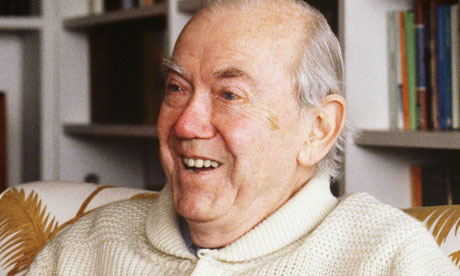
The last acknowledgement at the end of Pico Iyer's 10th book is to the man within his head, "to the author who, almost in spite of himself, taught me and so many others how to move around the world and even how to hazard trust". This "author", as we know from the subtitle and everything that follows, is Graham Greene. What Greene would have made of the acknowledgement is one of the many unresolved thoughts sparked by this personal and passionate book.
We all carry people within us – parents, siblings, friends, an inspired teacher or lover, someone met on a train in India. Their memory lives on in us and their influence is occasionally, and often unexpectedly, felt. But for Iyer, as perhaps with many writers and artists, this influence can be more specific and more pervasive.
In previous books, Iyer has crossed the world considering the effects of travel (The Global Soul and Sun After Dark) or following in Greene's footsteps in search of a plot for a novel (Cuba and the Night). His fascination with travel, with the exotic and the spiritual, has coalesced into an obsession with Greene, or at least with his words and works, in particular (judging by the frequency of their mention here) with The Quiet American, The End of the Affair, The Power and the Glory and The Heart of the Matter. Iyer's background is multinational – he lives between cultures and countries – and has inevitably involved much travel. So to recognise Greene as the person "who taught me how to move around the world" is to acknowledge an influence that goes to the core of his self and his work.
There is, of course, neither a straight nor a single thread to this narrative. How could there be when the author and one of his subjects never met? There was a moment, a couple of years before Greene's death in 1991, when Iyer asked to interview Greene for Time magazine: he received a polite, typed rejection, in a blue envelope. Without that meeting, there is nothing more substantial to this strand of the story than the connections, coincidences, similarities and occasional differences that Iyer observes. In Saigon, for instance, he finds a city, and characters, "not so different from what Greene had seen in 1951" and which he had written about in The Quiet American. In Havana, in 1987, he met a hustler called Carlos with whom he has the sort of relationship that lies at the heart of Greene's books, where "two men come together in the dark and open their hearts". There are many other crossovers, from a shared need to be away (Greene admitted he never felt himself until he crossed the Channel) to the way Greene's style seems to pervade Iyer's writing, and the echo to the title of Greene's first published novel, The Man Within, in this work.
But Iyer, the literary stalker, knows he was let off the hook by being kept at a physical distance from the man. The living Greene would have been polite but distant to the stranger, while "the man within your head whispers his secrets and fears to you". The real Greene can be criticised for treating his wife badly, but the one in his head is always and only a force for good.
Part of the power of this book stems from the honesty with which Iyer describes his relationship with his father. He believed he had an intimacy with Greene, his imagined "adopted father", the Virgil to his Dante. But his real father comes across as a more distant and troubling character, a mystery Iyer accepts he could never solve. Madras-born Raghavan Iyer earned a first in PPE at Oxford before taking his family to California, in the 1960s, where he lionised Gandhi, promoted Madame Blavatsky and the theosophists, and was an inspiring professor at the University of California. The younger Iyer was sent back to England for his education and then headed out into the world. It wasn't until towards the end of his father's life that this unusually composed man revealed himself as he left a voicemail for his son. Interspersed with "racking sobs" was the father's admiration for his son's essay on Greene. Iyer senior was particularly moved by his son's recognition, learned from the novelist, that the real enemy lies within us.
The lack of any direct contact with one of his subjects, and the distance of his relationship with the other, might have led a lesser writer to self-indulgence or an easy sentimentality. Iyer avoids both pitfalls and, 17 years after his father's death, has produced a captivating and intelligent hybrid. "You're not writing a biography?" his puzzled wife asks towards the end of the book, perhaps aware of the fate of Norman Sherry, Greene's much-abused official biographer. "Oh no," Iyer replies. "The opposite." It is, on one level, a meditation as to why one can feel closer to someone one has never met than to one's parents and, on another, an eloquent and intelligent investigation into fathers and sons. It is a book that contains travel anecdotes, personal memoirs, literary criticism and, yes, biography and autobiography. And yet the result is none of the above, being instead one of those hard to categorise books that publishers resist, booksellers puzzle over but readers will surely love.

